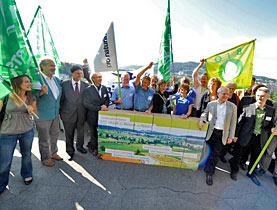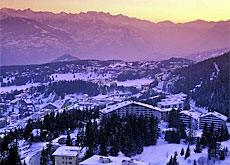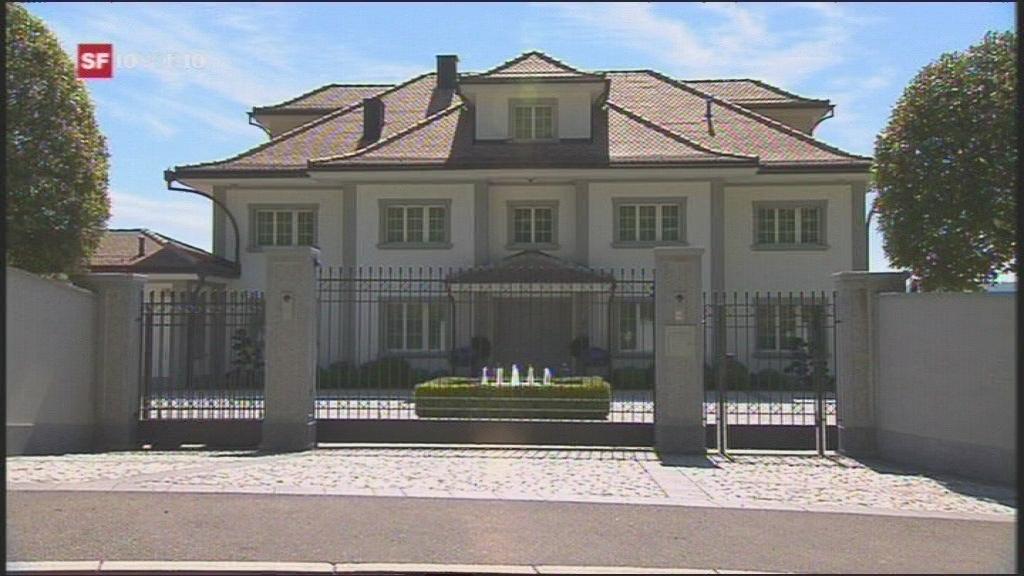Little political support to cut urban sprawl

Proposals by a leading environmental group to put a stop to urban sprawl have failed to gain much support in parliament.
The two initiatives launched by the Franz Weber Foundation call for a limit on the construction of second residences and for tighter restrictions on large building projects such as shopping centres and sport stadiums.
The foundation has collected about 110,000 signatures to force a nationwide vote on the issue, prompting Thursday’s parliamentary debate.
Speakers from across the whole political spectrum agreed that action needed to be taken to prevent urban sprawl, but Franz Weber’s proposals went too far for most, other than members of the Green Party and some centre-left Social Democrats.
The measures were branded as too radical, counterproductive, damaging to the economy and tourism in particular. Opponents also said the initiatives were neither practical nor in line with constitutional principles.
“It is an infringement on the autonomy of cantonal and local authorities,” said Toni Brunner of the rightwing Swiss People’s Party.
Werner Messmer of the centre-right Radical Party warned of a counterproductive impact on property prices as a result of a cap on holiday homes.
Viola Amherd, a representative of the centre-right Christian Democratic Party from the Valais – a popular holiday region – said the proposals amounted to shackling the local authorities.
She argued the communes knew best how to combat certain excesses, in particular a large number of second residences which remain empty for most of the year.
Doris Stump of the Social Democrats said the proposed regulations were too restrictive and would damage the economy.
She said her party preferred a reform of the law on spatial planning and favoured another initiative put forward by a coalition of environmental organisations for a 20-year moratorium on further urban development.
Defending nature
The Greens were the only major party which praised Franz Weber’s initiatives.
The party’s Franziska Teuscher said the land reform process was stalled and it therefore made sense to strengthen the role of the federal authorities.
“Land is a scare resource in Switzerland. Nearly a quarter of the [Swiss] surface area is unproductive,” added Adèle Thorens Goumaz.
Her party colleague Geri Müller predicted; “one day there will be no land left to develop.”
Bastien Girod stressed the urgency of action by pointing out that the equivalent of two football fields of land had been built over while the House was debating the issue.
However the Greens were unsuccessful in their bid to convince parliament to agree to a watered-down version of the initiatives.

More
People’s initiative
Striking a nerve
Environment Minister Moritz Leuenberger said a counterproposal was equally strict and also risked being counterproductive.
“The initiatives strike a nerve,” he agreed, saying a growing population needs more and more land.
But the proposals on the table are not drafted carefully enough, Leuenberger said.
Instead he appealed to parliament to support the government’s amendments for the zoning law.
The House clearly rejected the initiatives as well as the counterproposal with a margin of up to 80 votes.
This outcome did not come as a great surprise, Girod told swissinfo.ch.
“The debate showed that parliament is incapable of agreeing concrete measures to protect the environment,” he said.
Urs Geiser, swissinfo.ch
The two people’s initiatives by the Franz Weber Foundation were handed in 18 months ago.
Campaigners collected the necessary signatures for a nationwide vote at a date still to be determined.
The outcome of the debate in the House of Representatives – the Senate will discuss the proposals later – is only a recommendation to voters.
A broad coalition of environmental groups submitted enough signatures for a similar people’s initiative last August seeking a 20-year moratorium on urban development.
Moves are also underway by the environment ministry to amend the zoning law, after a first draft was widely rejected.
Switzerland’s 26 cantons and the more than 2,600 communes are largely autonomous in planning and building matters.

In compliance with the JTI standards
More: SWI swissinfo.ch certified by the Journalism Trust Initiative





You can find an overview of ongoing debates with our journalists here. Please join us!
If you want to start a conversation about a topic raised in this article or want to report factual errors, email us at english@swissinfo.ch.